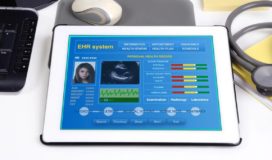How Electronic Health Records Improve Health Care Quality
Electronic health records are the digital version of the data of the person that can be shared and accessed by the person and the provider. EHR has helped in transforming the ways in which the medical services are provided in an effective manner.
To deliver the better results one needs better information and that is what EHR does. There is always an access to the detailed and accurate data that helps the physicians in making the important decisions for the treatment of the patient.
Improved health care quality for providers
- Quick Access to the Patient’s records
EHR provides all the necessary information to the providers in a detailed and accurate way. They can also get the records of the patients in the remote locations. The quick access to the patient’s health report allows the healthcare providers to offer more effective treatment to the patients.
- Clinical Alerts and Reminders
A physician takes care of lots of patients, so there are chances of mistakes or a treatment getting missed. But an EHR system gives the physician reminders and alerts about the tests and required changes in the treatment of the patient.
- Legible and Complete Documentation
The paperwork does have its limitations in the medical field. However, EHR overcomes all those limitations and comes as a better alternative. The data stored in the EHR system is more accurate and legible. All the important data of the person remains with the providers that help them in coming with new medications and treatment for the patient.
- Interfaces with labs and other providers
The best thing about these electronic health records is that these can be shared in the real time. This real-time transfer of the data helps medical lab operators to send the reports of the patient to the physician within the desired time span. This doubles the speed of the treatment as both patient and doctor can communicate online, and the patient can get the advice of the doctor from anywhere.
- More reliable prescribing
The prescriptions are safer and more reliable as the information provided to the physician is accurate and discloses all that he wants to know.
Better services to the Patients
- Less Paperwork
Electronic records are not only beneficial in reducing the paperwork for the clinics but it works equally good for the patients as well. As all the data is stored in the patient portal, therefore there is no need to keep all the prescription papers and tests’ reports.
- E-prescriptions
These are the electronic form of the prescriptions made by the doctors. Patients need not worry about the illegible handwriting of the doctors as e-prescriptions will be automatically sent to the pharmacy from where one can collect their required medicines.
- Electronic Referrals
A patient need not carry all the documents in case he has been referred to another specialist. There is a tool called electronic referral that will be generated for the patient. This referral will display all the required information what the specialists wanted to know.
- Patient Portals
These are the portals containing all the information of the patient. These are helpful in online interaction for providers.
Health IT




